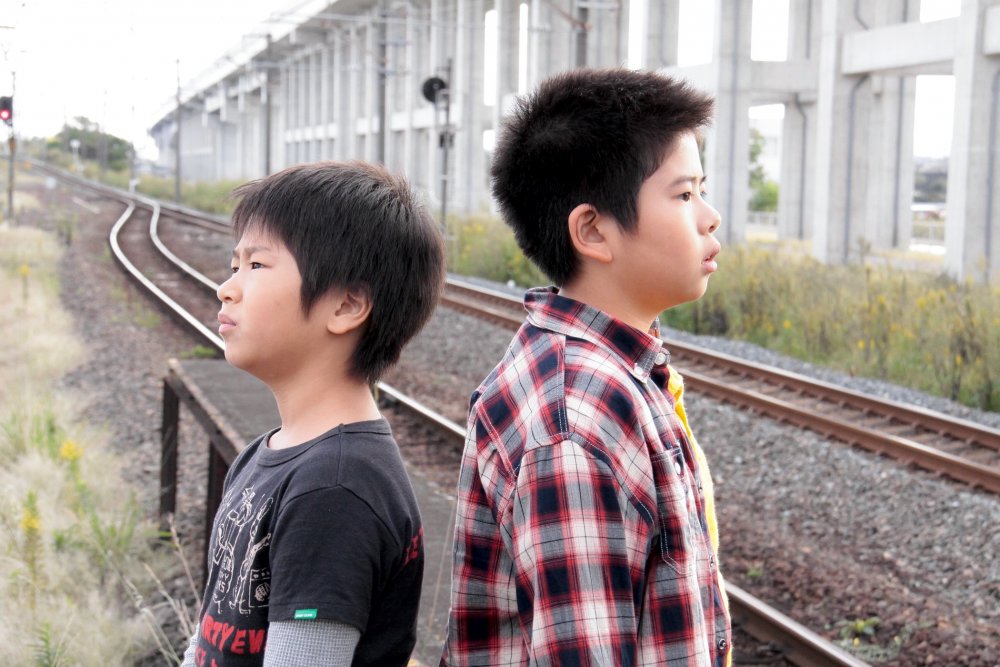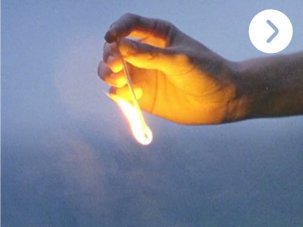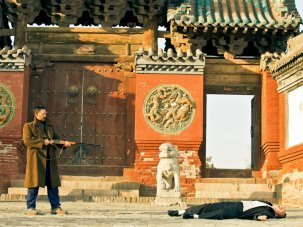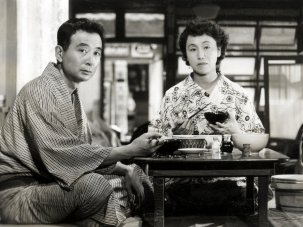from our February 2013 issue

I Wish (2011)
In his latest film Koreeda Hirokazu picks up where Edward Yang left off in A One and a Two… (Yi Yi), with a searching and immersively moving account of three generations in one family: the mild dottiness of the grandparents as they look for ways to occupy the hours and days, the emotional and financial problems of the parents who have been separated for six months, and most of all the joys, fears and dreams of the kids. Koreeda greatly admired Yang (one of his early TV documentaries was a double-portrait of the Taiwanese masters Yang and Hou Hsiao-Hsien) and he has gradually acquired Yang’s ability to combine left-brain analysis with right-brain sensitivity. He looks more and more like a master himself.
| Japan 2011
Crew Cast DTS Distributor Arrow Films Japanese theatrical title Kiseki |
I Wish (the Japanese title Kiseki means ‘Miracle’) has two points of departure, one factual, one fictional. The factual one is the opening of the Shinkansen (Bullet Train) service from Hakata to Kagoshima in Kyushu, Japan’s large western island. Most of the film is divided between two stops on this line, the northern city of Fukuoka and the southern terminus Kagoshima, the latter menaced by the proximity of the semi-active volcano Sakurajima; the climax takes place near the town of Kawashiri, the exact mid-point of the new line.
The fictional one is a schism in the working-class Osako family: the wife has left her feckless husband and moved to stay with her elderly parents in Kagoshima, together with her elder son, the 12-year-old Koichi, while the husband, who works as a labourer while trying to revive his career as an indie rocker, lives in Fukuoka with their younger son Ryunosuke (Ryu for short).
The parents haven’t spoken in months, but the boys call each other from school every day. Koichi wants more than anything to reunite the family, but Ryu dreads returning to the days of angry rows across the dinner table and rather likes the status quo, which includes having new friends and growing vegetables in the back garden.
Fact and fiction converge when Koichi gets it into his head that the first north- and south-bound trains to run on the new line will release magical energy when they pass each other at the mid-point – a magical energy which will make dreams come true. The core of the film is Koichi’s gradual realisation that he’s not at all sure what his dream is: he goes from longing for Sakurajima to erupt (so that the family will have to leave the “dump” of Kagoshima) to longing for his parents to come back together and ultimately to putting “the world” ahead of the family. Koichi remembers the good times (a family picnic in an Osaka theme park), while Ryu can’t forget the bad times; the younger boy’s doubts inflect and help to shape his elder brother’s sense of their situation.
Like everything else in the film, this seems truthful, accurately observed and superbly acted. Koreeda has been attuned to the feelings of kids in difficult family circumstances since his feature debut Maboroshi (Maborosi, 1995), and his direction of all the children here (especially real-life brothers Maeda Koki and Maeda Oshiro) is almost uncannily empathetic. Koichi’s reaction to his teacher’s attempt to come on like a surrogate father is spot-on, and the way that Ryu acts his age when he’s with his peers but treats his father like a wayward child is a particular comic joy.
Koreeda has learnt from Yang that no detail is unimportant, and I Wish finesses his skill in giving seemingly trivial, everyday moments and images a lasting resonance. When the Shinkansen trains finally pass each other and most of the kids shout out their wishes, Koreeda fills the screen with a montage of still-life images from earlier in the film (not necessarily recapitulating earlier shots), and it’s a measure of his success that every one of them is not only instantly recognisable but also poignant or amusing in this new context.
Another measure would be his ability to marshal a large ensemble cast in concise scenes which appear almost random but are in fact precisely engineered to contribute to the bigger picture. Case in point: the interplay/parallels between the grandparents’ activities – Grandma’s ‘expressive dance’ classes, Grandpa’s attempt to bake the kind of Karukan sponge cake he once enjoyed for his group of old codgers – and the children’s play.
The film has the quality of a realist fable, underpinned by strong elements of social commentary. The adult stars, most returning from previous Koreeda movies, contribute expert character sketches which intensify the sociological dimension. But it’s the insight into childhood experience which shines.
-
Sight & Sound: the February 2013 issue

Tarantino’s Django Unchained, Bigelow’s Zero Dark Thirty, Spielberg’s Lincoln and much more.
-
The Digital Edition and Archive quick link
Log in here to your digital edition and archive subscription, take a look at the packages on offer and buy a subscription.







